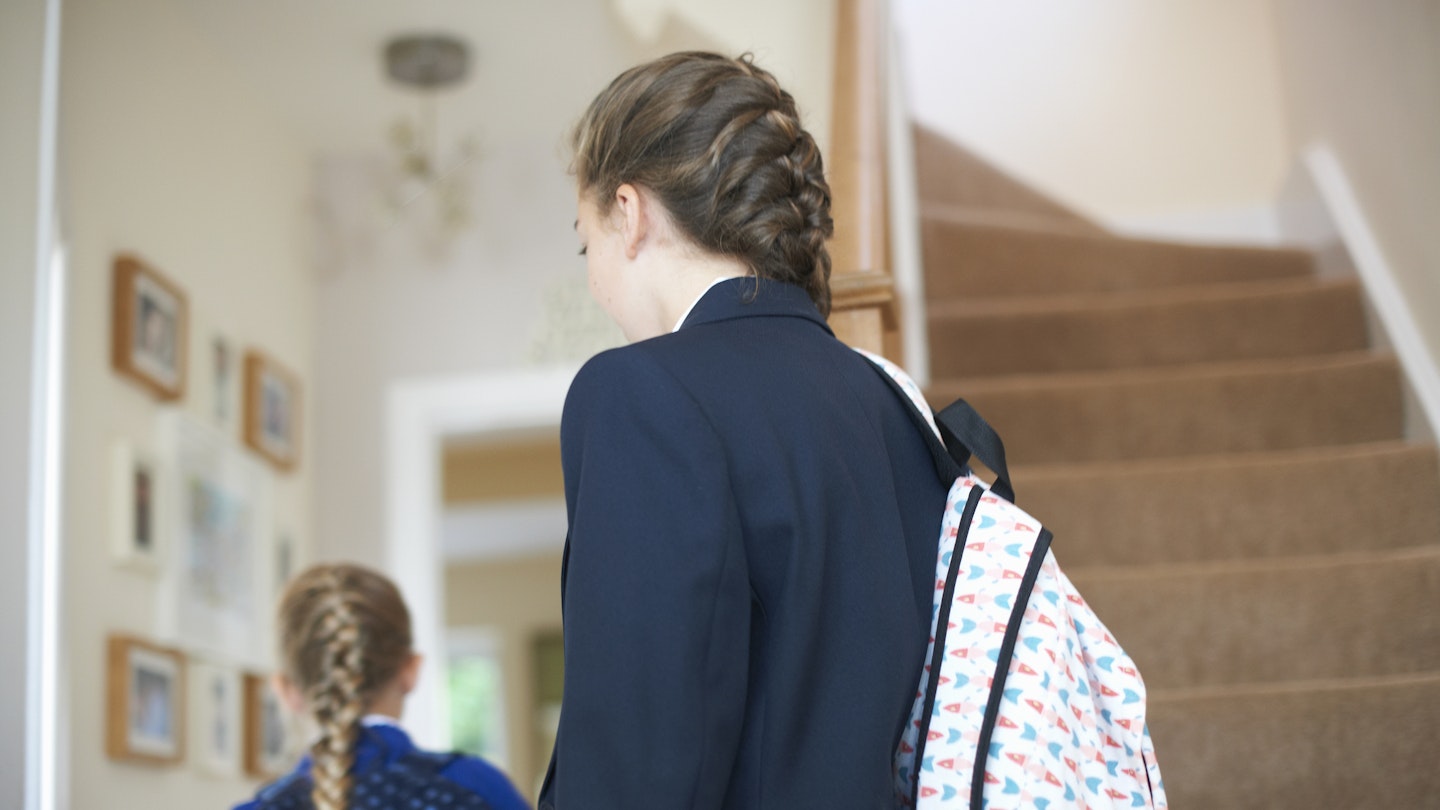Why are girls so unhappy? It’s a line I’ve seen in countless headlines over the past few years, and heard countless times as I’ve chatted with friends about our various daughters (I have two, aged ten and 13).
It’s also a line I’ve been reflecting on this week after a new study found that the happiness levels of young girls have dropped to their lowest point in 15 years. The annual Girlguiding survey – which surveyed 2,614 girls between the ages of seven and 21 – found this happiness dip is driven by concerns over their appearance, online dangers and sexual harassment. Fewer than 20 per cent of girls surveyed described themselves as very happy, a drop of 40 per cent since 2009, while 89 per cent said they felt generally worried and anxious.
But what are they anxious about? That’s another line I hear a lot. Mostly from mothers like myself who grew up in the 80s and 90s, a time spent bouncing around our neighbourhoods on BMXs, and watching Neighbours after school. Sure, there were times in my childhood that felt tough – my parents divorced when I was 11 and my mother developed breast cancer when I was 13 – but overall my friends and I were happy and carefree (at least that’s how we remember it).
Yet today, those same friends and I discuss how our own daughters, and their friends, are struggling with things like anxiety, school refusal and low self-esteem. The same goes for my wider circle of mum friends. We all know girls who self-harm, have sleep issues, depression, body dysmorphia, or disordered eating habits. Talk about child psychologists, and speaking to schools about putting emotional support in place, is commonplace among parents.
And the figures bear this out. A study in January found the number of children in England needing treatment for serious mental health problems, including eating disorders, self-harm, depression and anxiety, rose by 39% in 2021-2022.
Of the new findings, Angela Salt, Girlguiding’s chief executive, said: ‘It’s devastating to hear that girls’ happiness has steadily declined over the last 15 years. It’s clear girls are feeling pressure from all angles, from harm online to appearance pressures to sexual harassment in school.’
When you dig into the findings it becomes more devastating still. The number of 13 to 21-year-olds who have received sexist comments online has doubled since 2018, along with the number of strangers contacting them online. It happens to younger girls too, with 44 per cent of seven to 10-year-olds saying strangers had messaged them while they played games online.
It happens offline too, with four in ten girls (some as young as 11) saying they had been shouted at sexually in the street. More than two thirds of 11 to 16-year-olds said boys at their school had made toxic comments about them. While over two-thirds of girls aged between 11 and 21 said they sometimes feel ashamed of how they look compared to those they see in the media and online.
None of this is entirely new, of course. Some of those figures bring to mind the boy – whose name I can still remember 30 years on, who called my fair, Irish legs ‘milk bottles’ on the school bus one day, making everyone laugh. I wore tights for the rest of the summer after that.
Similarly, psychologist Dr Linda Papadopoulos, also a mother of two girls, says she remembers comparing herself unfavourably to Cindy Crawford in the 1990s. “The difference was back then, I wasn’t comparing myself to hundreds of women online, like girls are today,” she tells me.
However, she says while it’s tempting to vilify social media, it’s only part of the happiness problem. ‘And if it’s used in the right way, at the right age, there is a good side to it in terms of connecting. However, girls especially are programmed to seek social approval, particularly around the start of puberty at 11 or 12. Which is exactly when most get their own phone and join social media.’
The answer, according to Tanya Goodwin, a tech ethics expert and author of My Brain Has Too Many Tabs Open, is to delay giving your child their first phone for as long as possible (and to have sensible limits in place when you do). ‘My personal choice [for a first phone] is 13, and this is largely based on the age limits for the most commonly used apps.’
Dr Papadopoulos also says that while greater awareness of mental health is a good thing, it can also cause children to apply labels to perfectly normal adolescent feelings: ‘Today you hear kids throwing around words like OCD, depression and anxiety to describe the day to day of life. Anxiety is very different to feeling stressed, and OCD is different to feeling superstitious,’ she says.
Lastly, she advises something that has been a magic pill for my daughters, who both play hours of football each week for their school and village teams: fresh air and exercise. ‘Studies show the benefits to mental health and happiness are huge,’ she says. ‘Sport also helps girls in particular see their bodies as capable and strong, rather than aesthetic, which improves their self esteem.’
